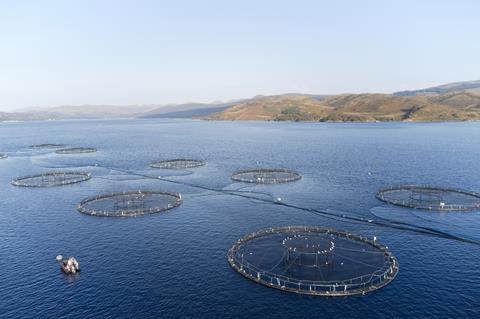
Animal welfare campaigners have welcomed a report calling for an “immediate timetable” to address concerns around salmon farming practices in Scotland.
An inquiry by the Scottish parliament’s Rural Affairs & Islands Committee found “slow progress” had been made on the recommendations put forward by its predecessor committee in 2018, which had flagged significant environmental, fish mortality and welfare concerns within the sector.
MSPs have now called for stronger leadership from the Scottish government, and requested the provision of a “clear timetable” that sets out how recommendations from an earlier probe in 2018, and its own recommendations, will be executed within the next year.
Finlay Carson, MSP and convener of the committee, said “further progress” should have been made in implementing the committee’s 2018 recommendations, and in anticipating the impact of climate change and rising sea temperatures on the industry.
“This would have helped address some of the polarised views the industry is currently facing in relation to the production process,” he said.
“We are calling for the Scottish government to redouble its focus on regulatory issues to ensure this industry, which is so important to the Scottish economy, is both future-proofed and enabled to grow sustainably.”
Key recommendations made in the latest report include providing powers to the Fish Health Inspectorate (or another appropriate body) to limit or halt production at sites which record persistently high mortality rates.
The Scottish government has also been advised to establish a research project focused on testing and improving the modelling of environmental conditions that are known to cause high mortality events on salmon farms.
This may provide early warnings to the industry and inform technological solutions and approaches to husbandry to mitigate high mortality events, MSPs said.
In addition, the publication of “comprehensive, consistent and transparent” mortality figures that include the number of fish at a farm, the freshwater and seawater mortality per facility, with accurate numbers of dead salmon, wrasse and lumpsuckers per week and with cumulative mortality totals at the end of each production cycle was recommended.
The Scottish government was also urged to produce an annual health and welfare status report for all of the farmed fish in Scotland.
Fish mortality and the prevalence of sea lice on farms, has become an issue of significant concern for the farmed salmon sector in recent years.
Read more: How many more controversies can the salmon sector survive?
Elsewhere, the report called for further research to address significant gaps in the knowledge, data, analysis and monitoring of the adverse risks of salmon farming in the marine environment, especially around discharges from farm pens and the use of medicines.
Responding to the committee’s report, Chris Packham, TV broadcaster and environmental campaigner, warned that climate breakdown and biodiversity loss were accelerating at an unprecedented rate in Scotland and around the world.
“As we observe the devastating consequences unfold in real-time – the deadly fires, floods, and the species lost forever – we need to recognise that these events will only increase in frequency and worsen considerably without urgent action,” he said.
“The committee rightly acknowledges that climate breakdown is affecting the Scottish salmon industry, with millions of fish dying each year due to rising water temperatures. Let’s be clear that deaths and disease will inevitably increase on fish farms if strict measures aren’t taken now.”
Edie Bowles, executive director of the Animal Law Foundation, said farmed fish currently have some legal protections under the Animal Health and Welfare Act in Scotland.
“We are calling for official guidance to offer clarity on what the law means, which in turn will facilitate enforcement action where there are breaches of the legal protections,” she said.
“We are delighted that the Rural Affairs & Islands Committee agrees with us and is recommending official guidance is put in place to protect the welfare of farmed fish.”
Abigail Penny, executive director of Animal Equality UK, said the report reaffirmed how the industry “remains in a state of crisis”.
“The committee recommends one year for salmon producers to clean up their act; we will be watching closely to ensure they do,” she said.
However, Tavish Scott, chief executive of Salmon Scotland, the trade body for the UK’s biggest food export, which supports 12,500 jobs in Scotland, defended the sector’s work.
“Scottish salmon farms already have world-leading welfare and environmental standards and are subject to strict regulation, but we continue to innovate, which is why survival rates are at a four-year high, sea lice levels are at a historic low, and consumer sales of our nutritious fish are on track to break all records,” Scott said.
“We engaged constructively with MSPs to provide evidence of the significant progress our sector has made, and we note that most of their recommendations are for the Scottish government.”


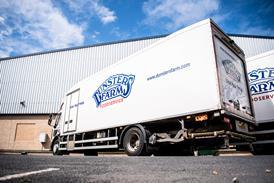




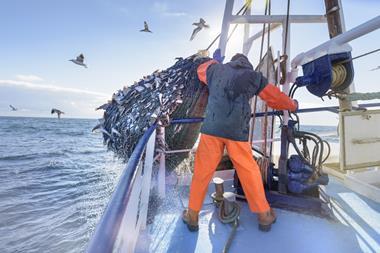
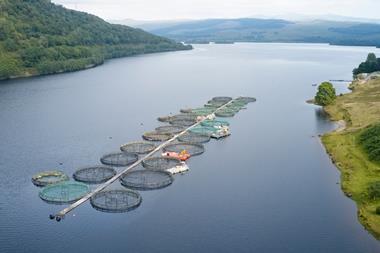



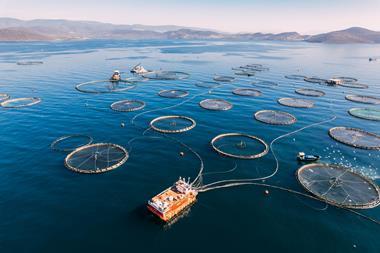

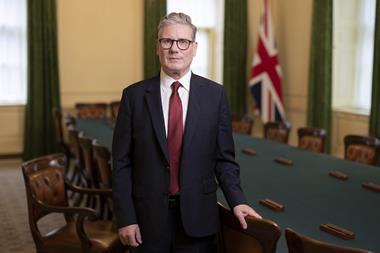




No comments yet